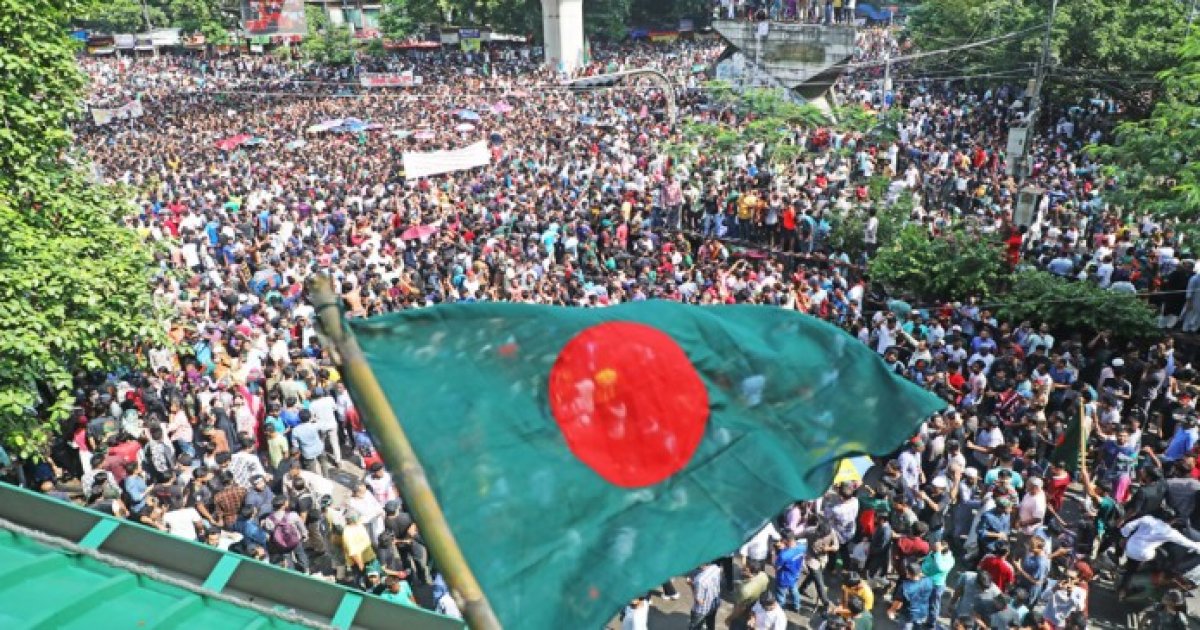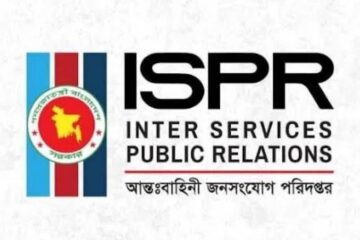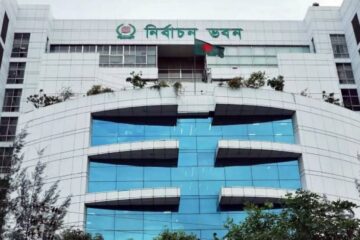During World War II, Samuel Andrew Stouffer introduced the “Relative Deprivation Theory” which suggests that social movements emerge when individuals perceive a significant disparity between their current situation and their expectations of what they believe is possible to bring significant changes to the existing socio-political turmoil. However, the reality is shaped by various factors, notably socioeconomic conditions and access to rights.
Over the past 70 years, social science researchers have consistently found a strong connection between this theory and the rise of social movements. Additionally, it resonates with psychological concepts and links to theories such as the frustration-aggression hypothesis, exchange theory, equity theory, and social comparison theory. The Relative Deprivation Theory also closely relates to workplace satisfaction and has been examined in studies on urban unrest in Black communities.
The theory of relative deprivation has faced considerable scholarly criticism. A key issue is that different scholars have interpreted the concept of “relative deprivation” in varying ways. For instance, Cook in 1977, who advocated for the theory, raised concerns about whether it effectively covers its intended scope, attributing this to a “lack of precision in definition rather than because of the genuine breadth of applicability.”
Generally, theorists agree that feelings of deprivation emerge and change in response to specific cognitive and emotional factors, rather than solely based on objective circumstances. However, the precise factors that lead to these feelings remain a topic of ongoing debate. Currently, there are at least four distinct interpretations of relative deprivation theory.
This theory was inspired by Gurr in 1970, who interpreted and explained the theory from more practical observations and examined the tension that arises from the difference between what individuals believe they deserve (the “ought”) and their actual circumstances (the “is”). It emphasises that felt deprivation occurs when an individual (1) lacks certain goods and opportunities (X), (2) desires X and feels entitled to it, and (3) perceives that achieving X is impossible.
To connect this theory with the student movement or mass uprisings in Bangladesh by July-August 2024, scholars may refer to it as a continuation of long-standing grievances related to the government’s failure to reform the quota system for public sector jobs.
Students from non-quota backgrounds felt that they were being denied fair opportunities due to a system that disproportionately favours certain groups, often at the expense of solid merit. The former political government had made promises for reforms during the 2018 student movement, which raised students’ hopes.
When these promises were not fulfilled, frustration boiled over, leading to mobilization efforts intertwined with political agendas aimed at dismantling the autocratic regime in Bangladesh.
This discrepancy is underscored by the high unemployment rates among educated youth, despite their qualifications. Both movements stem from a buildup of grievances fueled by systemic inefficiencies, corruption, and unfulfilled government promises.
Young people, especially students, often find themselves sidelined in decision-making processes, despite comprising a significant portion of the population. Their heightened awareness and connectivity through social media intensify their feelings of relative deprivation.
While examining Marxist and class conflict theories to provide insight into Bangladesh’s significant student movement and uprising in July-August 2024, it argues that these movements are rooted in class struggle, where oppressed groups, including students, challenge the dominance of the ruling class. Interpretations of Marxism, particularly from a radical perspective, primarily highlight industrial conflicts that arise from class disputes.
Marxism focuses on the stratification of social classes and the struggle between the working class and the capitalists, or bourgeoisie. It delves deeper into the exploitation of workers within the capitalist production system. While some scholars view Marxism as a radical solution to class conflict, others seek to reinterpret its original intent from various angles.
Nonetheless, this perspective accurately reflects the nature of capitalist society, suggesting that workplace relationships often contradict historical development. It also acknowledges existing employment relations and authority disparities within the broader society.
Moreover, Marxism can serve as a framework for analysis, exploring the connections between ownership, power, and social change. This approach sheds light on social transformations that surpass current conditions. A notable strength of Marxism lies in its critique of social power dynamics and the conflict between the working class and the capitalist class.
This critique clarifies the unequal distribution of power and resources among social classes, aiding in the understanding of the conflict, transformation, and changes brought about by the emergence of a new proletarian class or civil society.
While this article may not directly focus on Marx’s many theories, due to the nature of the investigation, it is essential to examine aspects such as economic antagonism, political tension, social inequality, and revolutionary potential through the lens of Marxism. A brief analysis of these theoretical foundations will help clarify how these contributing factors are relevant to the uprising in Bangladesh that occurred in July and August 2024.
Economic antagonism and class conflict stem from the economic inequalities and power imbalances that exist between different social classes. The bourgeoisie aims to maximize profits, while the proletariat strives for better wages and working conditions. This class conflict is relevant to the student movement in Bangladesh, where students often support working-class struggles and act as key catalysts for change.
A notable example of this dynamic can be seen in the 1968 protests in France, where students and workers formed an alliance to challenge traditional social structures and express their discontent. Similarly, the recent student movement in Bangladesh can be viewed in light of the events of 1968 in France, as both students and workers united to protest against the economic injustices imposed by the ruling authorities.
Political tension often arises from class conflict within societies, manifesting through various political struggles such as labour strikes, protests, and revolutions. These conflicts challenge existing power structures and advocate for social change. According to Daniel Singer (1970), the protests of 1968 underscored the fragility of authoritarian governance in modern democracies and highlighted the importance of addressing grassroots grievances.
For instance, the strikes involving 10 million workers brought the French economy to a standstill and the events led to significant reforms, including improved labour rights and wage increases. The protests called into question the legitimacy of authority and centralized governance, thereby influencing French political culture to become more receptive to participatory democracy.
Similarly, the July-August student uprising in Bangladesh reflects the country’s ongoing political tensions.
In Bangladesh, the former ousted Prime Minister Sheikh Hasina’s government undermined democracy by imposing a dictatorship that is widely thought to have been backed by India. The regime also manipulated electoral systems over three consecutive parliamentary elections. Consequently, young people, who felt deprived of their democratic right to vote for suitable candidates in national and local elections, protested during the July-August student uprising. This uprising ultimately led Hasina to flee India for political refuge.
Marx’s theory of social inequality and class conflict emphasizes how societal institutions and practices maintain the dominance of the ruling class while marginalizing the working class. He believed that the inherent contradictions within capitalism would ultimately lead to its downfall, as the proletariat would rise and overthrow the bourgeoisie, establishing a classless society. This process has been observed in Bangladesh and other parts of the world over the past several decades.
The recent student uprising in Bangladesh can also be analyzed through the lens of Niccolò Machiavelli’s political theory, particularly his ideas presented in The Prince. This perspective emphasizes cunning, deceit, and pragmatic strategies for maintaining power. Machiavellianism can also be viewed as a personality trait that manipulates an individual’s character to justify one’s ends.
Those who exhibit Machiavellian traits engage in conscious calculation instead of allowing morality and virtue to guide their actions in convincing and controlling others. Additionally, Machiavellianism is considered one of the components of the Dark Triad, which includes psychopathy and narcissism.
Political leaders from ancient and modern times have often drawn inspiration from Machiavelli’s political theory to control their populations and maintain power, adopting Machiavellian principles. This approach sometimes requires leaders to act stubbornly, unethically, or immorally. As a result, many followers of Machiavelli instilled fear rather than love in their people to demonstrate their coercive power.
Machiavelli also advocated for the use of deception and manipulation to achieve political objectives and maintain power. Notable leaders who have exemplified Machiavellian principles include Vladimir Putin, Margaret Thatcher, Indira Gandhi, Lee Kuan Yew, Bashar al-Assad, and Sheikh Hasina.
However, in Bangladesh and Syria, both authoritarian figures were ultimately ousted after prolonged struggles. Following their removal from power, both Hasina and Assad sought political refuge in Russia and India, which some view as an unethical political shelter for former dictators.
The current article considers various contemporary social movements and protests, as delineated by Manuel Castells, a widely cited scholar and renowned sociologist and communication theorist. He is also best known for his insightful interpretations of how modern technology shapes social movements, rather than the traditional approach.
For example, his famous book, Networks of Outrage and Hope: Social Movements in the Internet Age, revealed academic research about the Arab uprisings, the Indignados movement in Spain, Occupy Wall Street, and protests in Turkey and Brazil. Despite their differences, these movements share a key characteristic: They are all interconnected through the establishment of autonomous communication networks enabled by the internet and wireless technology.
According to Castells (2015), networks are decentralized systems that operate without a single point of control, allowing for remarkable flexibility and adaptability to change. He argues that networks have replaced traditional hierarchies as the dominant social framework in the information age.
Within these networks, power stems from connecting and communicating effectively. The internet, mobile communication, and social media have ushered in a “network society,” enabling people and groups to connect and interact globally. In network societies, power often hinges on controlling communication channels, which empowers individuals to shape ideas and organise collective efforts.
An example of this can be seen in the July-August 2024 student uprising, where digital networking played a crucial role. Organizers connected with student movement leaders nationwide, facilitating a rapid transformation that resonated beyond borders.
During the movement, the government disconnected all mobile and social media networks in Bangladesh to destabilize the protest. However, this tactic ultimately failed. Several national and international news outlets reported that the government’s actions aimed to brutally suppress the movement, leading to the unlawful deaths of many students. The uprising quickly gained international momentum, placing significant pressure on the autocratic government to relinquish its hold on power.
However, despite discussing all the social movement theories, I found the most relevant theory in the context of the Monsoon Revolution in Bangladesh to be Vladimir Lenin’s Vanguard Theory. Lenin, a Russian revolutionary, politician, and political theorist, was the first head of government of the Soviet Union from the 1917 Revolution until he died in 1924. Lenin emphasizes the role of a dedicated, organized group of revolutionaries in leading the working class in achieving socialism.
Observations from the anticipated upsurge in Bangladesh during 2024-25 may reveal how these theories manifest in practice, showcasing the dynamics between organized movements and the general populace. The situation could provide insights into the effectiveness of a vanguard in mobilizing support, addressing socio-economic issues, and fostering political change in the context of Bangladesh’s unique social landscape.
Lenin’s Vanguard Theory posits that workers, or in the context of Bangladesh, students, often struggle to attain revolutionary consciousness without proper leadership. This underscores the necessity for a disciplined revolutionary political party, which has notably been lacking in Bangladesh.
Since 2009, there have been ongoing mass demonstrations against the unlawful actions of the autocratic government, culminating on August 5, 2024.. Interestingly, elites within the state also showed their support for the uprising. This point aligns with Lenin’s theory, emphasizing that without the involvement of these elites to provide direction, seizing state power presents significant challenges.
Ultimately, the driving force behind the movement was the youth of Bangladesh, who bravely laid down their lives in the struggle to bring democracy back to their nation. However, while the masses, including students, rallied together in solidarity, their actions were not rooted in a specific political ideology — something that is crucial for any revolution. This raises an important question: Should we label the July-August movement as a student uprising, a mass movement, or a true revolution?
Another critical inquiry is whether this movement will lead to positive structural changes in economic and civil sectors, contributing to the country’s long-term prosperity. Several significant social and popular uprisings occurred in British Bengal during the rule of West Pakistan and after the independence in 1971 in modern Bangladesh.
The current interim government of Bangladesh has taken steps to reform the public sector by establishing a reform committee. However, there is widespread public scepticism about the potential for significant changes in the reform policy, which has yet to be implemented. Many believe that vested interest groups will continue to prioritize their own agendas over the need for genuine, positive change in the country.
The national election is vital for the country, but significant gaps in the electoral process cast doubt on whether it will be held in February 2026. Internal and external conspiracies are at play, with some groups opposing the holding of timely elections.
Holding an election soon is crucial to attract foreign investments, as investors are hesitant to commit capital to a country without proper accountability and an elected government. Without these investments, improving employment conditions will be difficult, hindering the nation’s growth.
The interim government of Bangladesh currently faces a significant challenge: It lacks the legitimacy to enact laws. This power can only be exercised by elected members within the national parliament.
This has raised concerns about recognizing and formalizing the July-August student movement as an official document that all political parties and citizens should adhere to. However, there is no broad consensus on this matter.
The Bangladesh Nationalist Party (BNP), the largest political party, proposes that this issue be put to the public for resolution, suggesting a general vote during the upcoming parliamentary elections. Nevertheless, the process has yet to gain acceptance from all major political parties in the country, presenting a considerable hurdle.
Jamaat-e-Islami Bangladesh proposed differently. For example, this political party thinks that people are not accustomed to a referendum. So, the referendum can be held even before the next national parliament election. So, there will be no barrier to the election in February when the referendum is held.
The newly formed political party, known as the NCP, was established following the movement in July and August 2024. The NCP believes that, before the referendum, the July Charter must be incorporated into a Legal Framework (LFO). It will depend on the number of days that occur.
The next election will not be like other national elections. It will be different. Their basic tasks will bring fundamental changes, starting with the Constitution Order or the LFO, whose name should be announced. The elected people in the parliamentary elections will play a double role. Constitution reform will have its jurisdiction.
The primary challenge facing the NCP regarding the July Charter stems from the fact that this political party emerged after the student movement had begun. Consequently, the widespread support and enthusiasm that NCP leaders and activists once garnered throughout Bangladesh has significantly diminished.
This loss of momentum hampers their ability to effectively advocate for the establishment of the legal framework for the July Charter. Had the revolutionaries been able to galvanize the government with their own fervour, things might have turned out differently; however, they failed to do so.
Another misstep was failing to form a national government for a defined period, which would have involved substantial collaboration among the country’s leading political parties that participated in the movement. Now, we must consider whether the interim government can facilitate a free and fair national parliamentary election, especially given the current strength of the Election Commission, as many stakeholders from the Awami League remain in key state institutions.
Even if the Awami League is excluded from this inclusive election, the integrity of the election process could be called into question since the party has not been officially banned.
Additionally, the BNP has not held government office in the state for many years, which has limited its stakeholders and created a potential obstacle for the party if it were to attempt to govern for a full five-year term.
Although the Awami League may currently be inactive in politics, it could develop a strong political strategy to regain influence and exert pressure on the BNP. Therefore, if the BNP wants to challenge the Awami League or other political entities effectively in the future, it must strengthen its organization and connections to the public. Selecting the right candidates for the upcoming election is crucial for creating a more effective and sophisticated parliamentary presence in Bangladesh.
After a robust dialogue between some of the political parties in Bangladesh, the interim government declared the July Charter, in which major political parties, including the BNP, signed. However, the NCP, which was formed by the spirit of the July Movement, did not sign the charter. Thus, the question remains: Was it an inclusive charter?
The pursuit of social justice and economic liberation is crucial for the people of Bangladesh. One can’t help but wonder how long we will have to wait to witness the establishment of true social justice and economic freedom in the country.
Bangladesh possesses all the essential elements required for effective governance, yet these elements fail to function properly. Institutions have been undermined by human greed. Can the July Charter rejuvenate and restore these vital institutions?
Whilst the July-August student movement has shown promise, its overall sustainability has been disappointingly low, frustrating the populace and leaving the door open for future uprisings.
This article aims to explore how to ensure the longevity of these movements by advocating for significant reforms in the country’s crucial economic and social sectors. The goal is to benefit a broader segment of society rather than just catering to a handful of vested interests who have already capitalized on the upheaval experienced during recent times in Bangladesh.
Care must be taken that the July Charter does not become another piece of sentimental, ie, chetona business in Bangladesh.
Dr ASM Anam Ullah (PhD) is an Australian academic, human rights activist, political analyst, and OHS and industrial relations expert.
References
Alam, J. (2024). Bangladesh court issues arrest warrant for ex-Prime Minister Sheikh Hasina over deaths of protesters. AP. Retrieved from https://apnews.com/article/bangladesh-sheikh-hasina-arrest-warrant-isssued-f92d56b9c9930e9c6438c141c20f4b34
Aljazeera. (2024a). Bangladesh’s Sheikh Hasina forced to resign: What happened and what’s next? Retrieved from https://www.aljazeera.com/news/2024/8/5/bangladeshs-sheikh-hasina-forced-to-resign-what-happened-and-whats-next?utm_source=chatgpt.com
Anbarasan, E., & McArthur, T. (2024). Bangladesh court scraps job quotas after deadly unrest. BBC. Retrieved from https://www.bbc.com/news/articles/c6p27g628k6o
Anbarasan, E., & McArthur, T. (2024). Bangladesh court scraps job quotas after deadly unrest. BBC. Retrieved from https://www.bbc.com/news/articles/c6p27g628k6o
Bartos, O. J., & Wehr, P. (2002). Using conflict theory. Cambridge University Press.
Benner, E. (2013). Machiavelli’s Prince: A new reading. Oxford University Press, USA.
Bernstein, M., & Crosby, F. (1980). An empirical examination of relative deprivation theory. Journal of Experimental Social Psychology, 16(5), 442–456.
Business World. (2023). Machiavellian leadership and the quest for political reformation: Can strong leadership save a nation in crisis? Retrieved from https://www.bworldonline.com/opinion/2025/01/07/644923/machiavellian-leadership-and-the-quest-for-political-reformation-can-strong-leadership-save-a-nation-in-crisis/
Castells, M. (2015). Networks of outrage and hope: Social movements in the Internet age. John Wiley & Sons.
Cook, T. D., Crosby, F., & Hennigan, K. M. (1977). The construct validity of relative deprivation. In Comparison Processes: Theoretical and Empirical Perspectives (pp. 307–333).
Corea, H., & Erum, N. (2024). What is happening at the quota-reform protests in Bangladesh? Amnesty International. Retrieved from https://www.amnesty.org/en/latest/news/2024/07/what-is-happening-at-the-quota-reform-protests-in-bangladesh/
Dahrendorf, R. (2019). Class and class conflict in industrial society. In social stratification, class, race, and gender in sociological perspective, Second Edition (pp. 105-111). Routledge.
Engels, F. (1890). “To Conrad Schmidt, London, 5 August 1890.” In Marx and Engels collected works, vol. 49, 6–9. London: Lawrence & Wishart.
Gall, G. (2012). Richard Hyman: An assessment of his industrial relations: A Marxist introduction. Capital & Class, 36(1), 135149.
Gomes, W. (2024). The quota protests in Bangladesh: A critical analysis and call for reform. South Asia Journal. Retrieved from https://southasiajournal.net/the-quota-protests-in-bangladesh-a-critical-analysis-and-call-for-reform/
Gurr, T. R. (1070). Why men rebel. Princeton, N.J.: Princeton Univ. Press.
Gurr, T. R. (1970). Why men rebel. Princeton University Press.
Hyman, R. (2008). The state in industrial relations. The Sage handbook of industrial relations, 258–83.
Lavin, C. (2005). Postliberal agency in Marx’s Brumaire. Rethinking Marxism, 17(3), 439–454.
Lipset, S. M. (1969). The possible political effects of student activism. Social Science Information, 8(2), 7–29.
Macdonald, G. (2024a). What’s Behind Bangladesh’s student protests? United States Institute of Peace. Retrieved from https://www.usip.org/publications/2024/07/whats-behind-bangladeshs-student-protests
Macdonald. G. (2024b). Bangladesh’s revolution remains unfinished. United States Institute of Peace. Retrieved from https://www.usip.org/publications/2024/08/bangladeshs-revolution-remains-unfinished
Marx, K. (1887). Capital: a critique of political economy, volume I, book one: The process of production of capital. Kapital English.
Reuters. (2024a). Around 1,500 killed in Bangladesh protests that ousted PM Hasina. Retrieved from https://www.reuters.com/world/asia-pacific/around-1500-killed-bangladesh-protests-that-ousted-pm-hasina-2024-11-17/?utm_source=chatgpt.com
Ridwanul, H. (2024). The sudden fall of Bangladesh’s autocratic prime minister. Development & Cooperation. Retrieved from https://www.dandc.eu/en/article/why-sheikh-hasina-bangladeshs-longest-serving-leader-had-resign-5-august
Sakia, N. (2023). Machiavellian leaders in modern times. India Fellow. Retrieved from https://indiafellow.org/blog/all-posts/machiavellian-leaders-in-modern-times/
Singer, D. (1970). Prelude to revolution: France in May 1968. Hill and Wang.
Stone, R. J., Cox, A., & Gavin, M. (2020). Human resource management. John Wiley & Sons.
Stouffer, S. A., Suchman, E. A., DeVinney, L. C., Star, S. A., & Williams, Jr, R. M. (1949). The American soldier: Adjustment during Army life. (Studies in Social Psychology in World War II), vol. 1.
Tarrow, S. (1998). Power in movement: Social movements and contentious politics. Cambridge University Press.
Ullah, A. A. (2022). An analysis of Marxism in industrial relations theory in light of capitalism, neoliberalism and globalisation: A petite critical review from Bangladesh’s RMG perspectives. Middle East Journal of Business, 17(2), 5–18.
Ullah, A. S. M. A. (2024a). Understanding the student movement and the roads ahead. Dhaka Tribune. Retrieved from https://www.dhakatribune.com/opinion/specials/354667/understanding-the-student-movement-and-the-roads
Ullah, A. S. M. A. (2024b). Understanding the student movement and the roads ahead. Dhaka Tribune. Retrieved from: The lesson for BNP and other political parties. This is the third part of a four-part series. Retrieved from https://www.dhakatribune.com/opinion/op-ed/356352/understanding-the-student-movement-and-the-roads
Ullah, A. S. M. A., Ullah, A. A., & Hasan, M. K. (2022). Socio-economic development and challenges. After 50 years of the independence of Bangladesh: A review. Current Politics and Economics of South, Southeastern, and Central Asia, 31(4), 443–468.
Wolff, J. (1999). Marx and exploitation. The Journal of Ethics, 3(2), 105–120.



